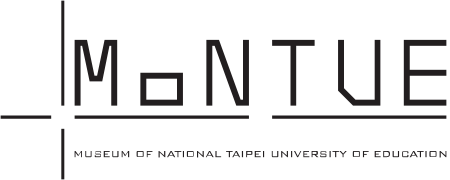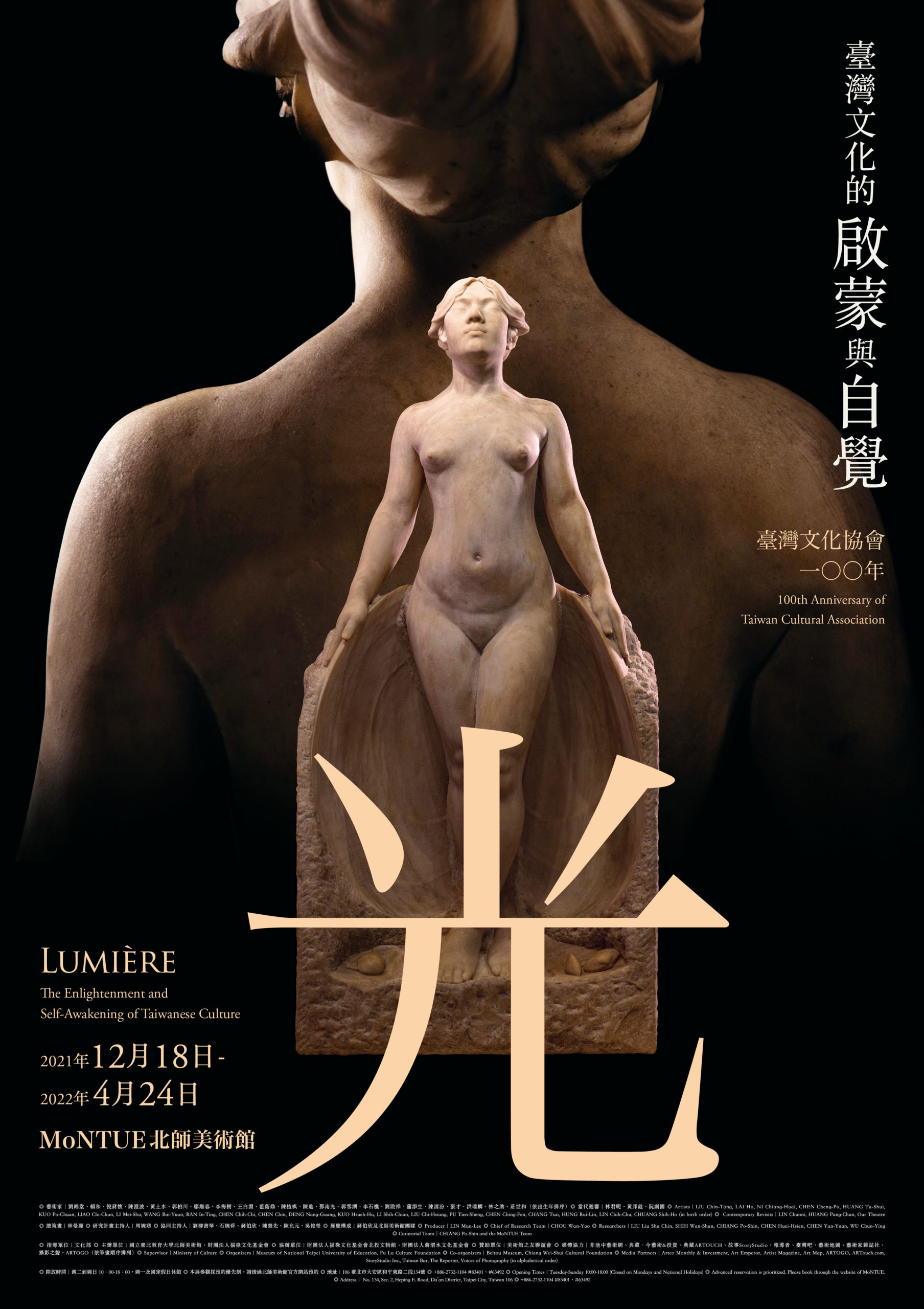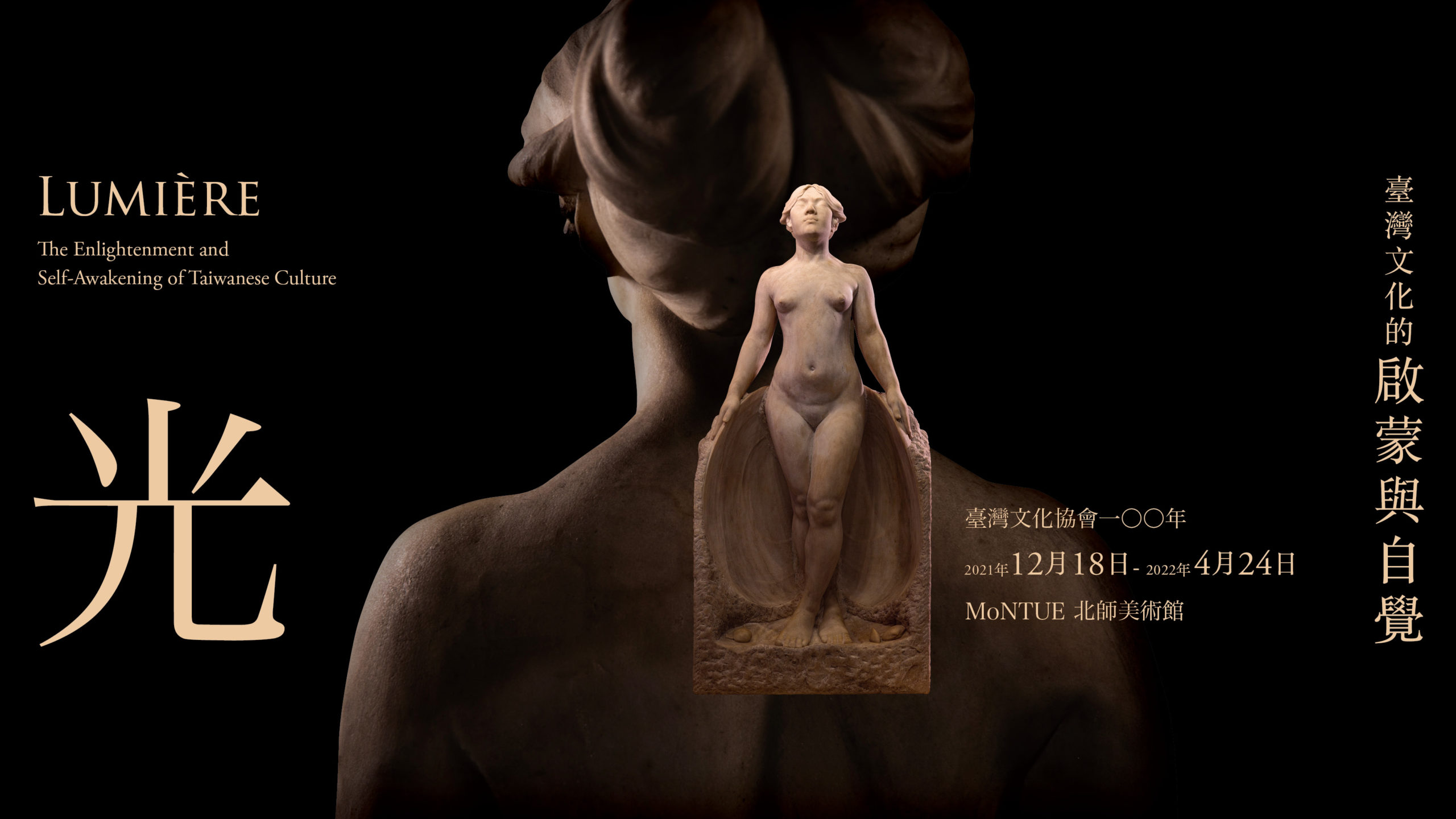2021.12.18 - 2022.04.24Lumière : The Enlightenment and Self-Awakening of Taiwanese Culture
In October of 1921, Huang Tu-shui was selected for Japan’s Teiten [Imperial Art Exhibition] with his work Water of Immorality. This work portrays a young, confident woman emerging from a clamshell, as though from darkness into the world. Her resolute yet reassuring stance symbolizes the imminent arrival of Taiwan’s cultural renaissance. On the 17th of that October, the Taiwan Cultural Association was established. In publishing his essay "Clinical Notes: A Patient Named Taiwan," charter member Chiang Weishui diagnosed Taiwan as suffering from “intellectual malnutrition,” for which the requisite treatment was a cultural movement, and the very organization to promote cultural movement was the Taiwan Cultural Association.
The ideological trend of national self-determination and civil rights movements during Taisho democracy after the First World War made an impact on the Taiwanese youth in Tokyo and inspired them to reflect on the experiences of discrimination in the colonies and to organize rallies. While Lin Hsien-tang spearheaded Petition Movement for the Establishment of a Taiwanese Parliament and hatched the Tai Oan Chheng Lian [Taiwan Youth] magazine with Tsai Hui-ru in Tokyo; Chiang Wei-shui and others formed the Taiwan Cultural Association on island. These were the momentous beginnings that paved the way for public intellectual enrichment, emancipation of minds, and artistic and cultural enlightenment.
A variety of political movements burgeoned as the cultural movement took root. The splintering of the Taiwan Cultural Association in 1927 gave rise to the formation of a number of organizations, each occupying their position on the spectrum and all working together toward Taiwan’s future. Meanwhile, influenced by global ideological trends, the cultural movement advocated by the Cultural Association germinated in new artistic concepts in paintings, sculptures, novels, plays and films of a new era. Artists persisted in seeking out the relationship between art and society, and the spirit of resistance through art and culture exemplified by the Cultural Association continued until after the Second World War.
In tribute to the centenary of the Taiwan Cultural Association in 2021, the Museum of National Taipei University of Education (MoNTUE) casts the gaze toward the contexts of that era. Firmly anchored in an era that saw the emergence of the first generation of Taiwanese artists, this exhibition attempts to traverse the aesthetic styles of the works and the personal journeys of the artists as it explores the specificities of that era and the ways in which artists gathered strength from within. Their audacious pursuit of art contributed to constructing Taiwan’s cultural countenance.
Supported by the Ministry of Culture and Fu Lu Culture Foundation, MoNTUE, with Lin Mun-lee as its exhibition producer, has invited scholars with extensive and expert knowledge in history, literature, drama, art, indigenous culture, women’s studies, and law to form an interdisciplinary research team, whose members include Chou Wan-yao, Liu Liu Shu Chin, Shih Wan-shun, Chiang Po-shin, Chen Huei-hsien, Chen Yun-yuan, and Wu Chun-ying. The research team looks at the temporal-spatial background of a century ago through movements and developments in Taiwanese society. By juxtaposing artworks and historical documents that mutually complement, this exhibition portrays the society in which the Cultural Association and its relevant figures existed from the 1920s to the 1940s, reflects on the progressive actions and spirit of the Taiwan Cultural Association, while revisiting the enlightenment and self-awakening of Taiwanese culture as it unfolded a century ago.
The four exhibition sections of “Impulse of Life,” “The Creation of Landscape,” “The Public and the Modern,” and “Self-Awakening Modernity” serve as points of departure that guide the viewers to explore from the inside outward, and to contemplate ways in which these artists began from self-observation to burst forth and chronicle society through their works, depicting the integration and resistance between the individual
and society. Meanwhile, the “Contemporary Revisits” segment has been developed in collaboration with the Our Theatre troupe and the directorial team of Lin Chunni and Huang Pang-Chuan. In their commissioned works, the Our Theatre troupe have reinterpreted the cultural plays of that era, while Lin and Huang have produced Kam Lōo Tsuí, a documentary inspired by and named after Water of Immorality, and an interactive video installation that brings the era to life. While showcasing the history of Taiwan through diverse approaches, this exhibition also attempts to incorporate contemporary artistic perspectives in its reaching back to the past.
Taking “Lumière” as its title, the exhibition “Lumière: The Enlightenment and Self-Awakening of Taiwanese Culture” responds to a group of intellectuals from a century ago, who kept courage in an era of darkness, who detected an almost imperceptible light and kept faith as they bounded ever-forward.


